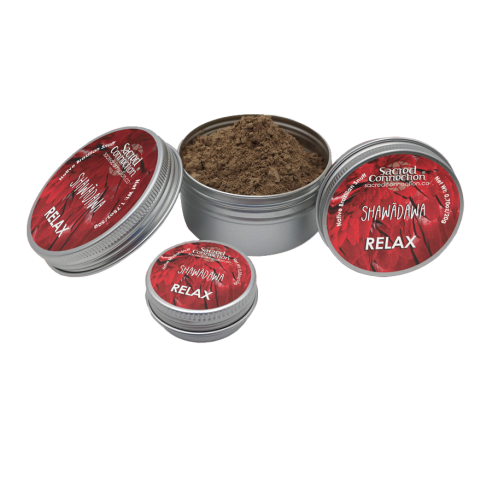- -25%
Shawãdawa Rapé - Relax
Shawãdawa Rapé - Relax - 10gr
Introducing Shawãdawa Rapé Relax - A Tranquil Blend for Inner Harmony
Unveiling Shawãdawa Rapé Relax, a brand-new Rapé offering from Sacred Connection, lovingly crafted by our Shawãdawa indigenous brothers. This exquisite shamanic snuff is expertly made with the potent essence of Tsunu ashes and the soothing embrace of Catinga-de-Mulata, promising a journey towards inner peace and physical equilibrium.
For those on the quest for serenity and a balanced state of being, Shawãdawa Rapé Relax stands as a premium choice. It's meticulously prepared with the utmost care, utilizing ethically sourced materials from the Amazon basin and skillfully produced by local Rapé artisans who follow the time-honored recipes of Shawãdawa tradition.
Shawãdawa Rapé Relax – A Novel Shamanic Fusion for Serenity
The Medicinal Components of Shawãdawa Rapé Relax
Tsunu Ashes
Tsunu tree ashes have long been a prized ingredient in numerous Rapé snuff blends, cherished by diverse indigenous communities throughout the history of natural medicine. The term "Tsunu" encompasses various tree species within the same genus, all indigenous to the Amazon basin. These ashes are the result of controlled bark burning, ensuring the final product maintains the perfect balance between scorching and rawness, a critical factor in determining the fineness of the resulting powder.
These tree ashes are rich in alkaline salts and contain all the minerals found in the plant's composition. They serve as a powerful binder, strengthening the cohesion of other botanicals and ingredients used in Rapé production. Tsunu is celebrated for its feminine strength and uplifting properties, often considered a vital force for cleansing and harmonizing energy while keeping individuals grounded.
Tanacetum vulgare
Native to Brazil, Tanacetum vulgare is a small, green shrub adorned with delicate and fragrant yellow flowers that bloom predominantly during warmer seasons, especially in summer. Known by various names, including Saint Marcos' herb, tanaceto, atanásia, and tasneira, it is most commonly referred to as Catinga-de-Mulata or Mulatinha. This plant has been embraced by several indigenous cultures in the Amazon Rainforest for its diverse medicinal applications.
Catinga-de-Mulata is particularly valued for its role in caring for children, as a soothing agent, and as a natural repellent against lice and certain vermin. It is also employed to alleviate muscle discomfort, serve as a healing tonic for general wounds, and is highly regarded in shamanic and natural medicine for its effectiveness in treating common flu symptoms, skin issues, as well as stomach and kidney ailments.
The Shawãdawa Creators of Rapé Relax
The Shawãdawa people have inhabited the Amazon basin region alongside other indigenous groups and the rich biodiversity of the rainforest for countless generations. Belonging to the Pano linguistic family, their name, "Shawãdawa," translates to "Family (Dawa) of the Macaw (Shawã)," earning them the moniker of the Macaw People.
In the late 1800s and early 1900s, during the rubber boom and the extensive exploitation of the Amazon Forest, the Shawãdawa, like many other indigenous communities, experienced cultural repression and fragmentation. Nevertheless, in recent decades, they have undertaken substantial efforts to revitalize and transmit their heritage and history to younger generations.
Through manual labor and the sharing of their traditions with their youth and neighboring cultures, both within and beyond the Amazon Forest, the Shawãdawa are working towards reclaiming their language and portions of their ancestral lands that were previously seized.
By crafting and selling their Rapé blend, the Shawãdawa establish a cycle of sustainability and preservation of their traditional way of life. A portion of the proceeds is dedicated to reforesting specific flora used in natural medicine production, further supporting their cultural legacy.

